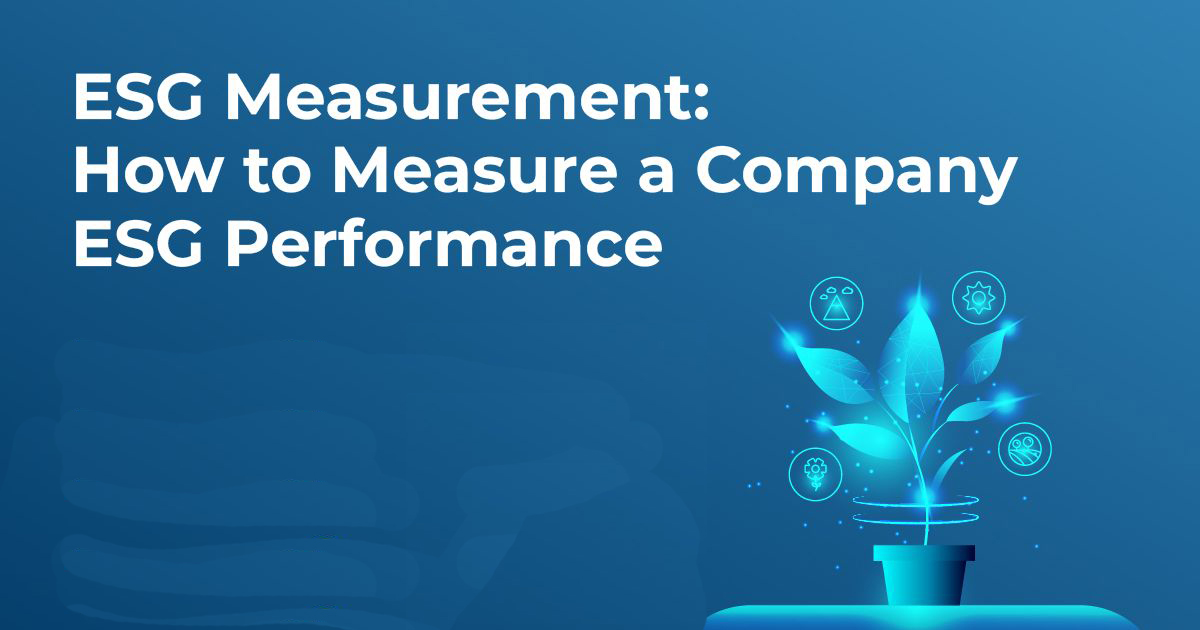
Introduction:
In the evolving landscape of modern business, Environmental, Social, and Governance (ESG) metrics have emerged as crucial indicators of a company's overall performance and impact on society. Companies worldwide are recognizing the importance of aligning their practices with sustainable principles, and the implementation of robust ESG metrics and benchmarks provides a roadmap for measuring success in business. This article explores the significance of ESG metrics, their key components, and how they serve as a guide to achieving sustainable success.
Understanding ESG Metrics:
Environmental Metrics: ESG environmental metrics assess a company's impact on the environment. Key indicators include carbon emissions, energy consumption, waste management, and water usage. Measuring these metrics enables businesses to quantify their environmental footprint and identify areas for improvement in resource efficiency and conservation.
Social Metrics: Social metrics focus on a company's relationships with its stakeholders, employees, and communities. Indicators may include diversity and inclusion, labor practices, employee satisfaction, and community engagement. Evaluating social metrics helps businesses understand their societal impact and ensures responsible and ethical practices.
Governance Metrics: Governance metrics gauge the effectiveness of a company's internal controls, leadership structures, and adherence to ethical business practices. Components such as board composition, executive compensation, and anti-corruption measures contribute to a comprehensive evaluation of governance practices.
Importance of ESG Metrics:
Enhanced Decision-Making: ESG metrics provide businesses with valuable data for informed decision-making. By incorporating sustainability metrics into strategic planning, companies can identify opportunities for improvement, mitigate risks, and align their operations with long-term environmental and social goals.
Risk Management: Robust ESG metrics act as a risk management tool, helping companies identify and address potential risks. By monitoring environmental, social, and governance factors, businesses can proactively manage risks related to regulatory compliance, reputational damage, and operational disruptions.
Stakeholder Trust and Transparency: Demonstrating commitment to ESG metrics fosters trust among stakeholders. Transparent reporting of ESG performance builds credibility with investors, customers, employees, and regulatory bodies, creating a foundation of trust that is essential for long-term success.
Competitive Advantage: Companies that excel in ESG metrics gain a competitive advantage. Investors increasingly consider ESG factors when making decisions, and consumers prefer businesses with a commitment to sustainability. Strong ESG performance enhances a company's reputation and market competitiveness.
Implementing ESG Metrics and Benchmarks:
Set Clear Goals and Targets: Define clear and measurable goals aligned with ESG principles. Establish targets for reducing environmental impact, improving social practices, and enhancing governance structures.
Integrate ESG into Business Processes: Embed ESG considerations into core business processes. This involves integrating sustainable practices into supply chain management, product development, and day-to-day operations.
Regular Monitoring and Reporting: Implement a robust monitoring system to regularly assess ESG metrics. Develop comprehensive reports that transparently communicate performance to stakeholders. Regular reporting ensures accountability and provides a basis for continuous improvement.
Conclusion:
ESG metrics and benchmarks are indispensable tools for businesses committed to achieving sustainable success. By measuring environmental impact, social practices, and governance structures, companies can navigate the complex landscape of responsible business practices. ESG metrics not only serve as a roadmap for success but also contribute to building a resilient and ethical business that thrives in a socially conscious and environmentally aware global economy.
